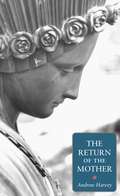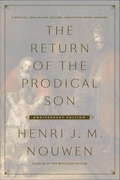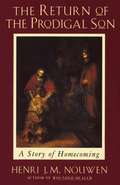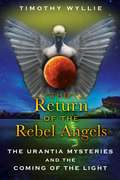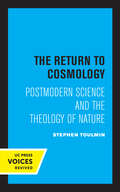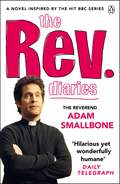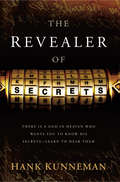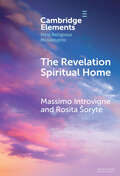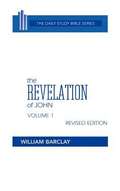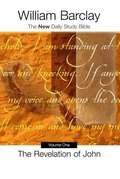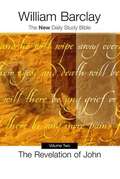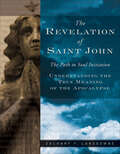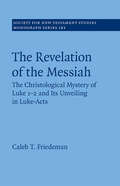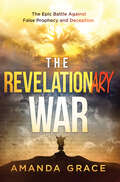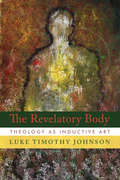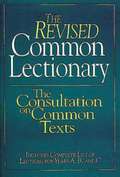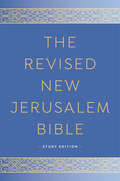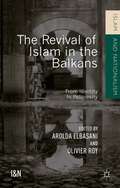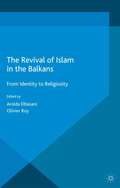- Table View
- List View
The Return of the Mother
by Andrew HarveyAdapted from a series of lectures on the historical basis and current resurgence of the sacred feminine, given by Andrew Harvey at the California Institute of Integral Studies in Spring 1994, The Return of the Mother is a profound journey into the heart of the Divine Mother. In this comprehensive and groundbreaking work, mystical scholar Andrew Harvey unearths traces of the sacred feminine in major world religions--Hinduism, Islam (Sufism), Buddhism, Taoism, and Christianity--and in aboriginal and indigenous wisdom traditions. Harvey presents a scathing critique of the patriarchal distortions in religious history and doctrine that have obscured full knowledge of the Divine Mother, and shows how to reintegrate this vital aspect into the spiritual consciousness of humankind. The Return of the Mother offers a radical new perspective, balancing the historical overemphasis on transcendence by honoring the immanence of the divine in passionate engagement in the world. Only by cultivating a direct, respectful relationship with the transformative power of the sacred feminine can we alter our disastrous attitude of dissociation from nature, the body, sexuality, and the details of human life, and generate the energy and compassion needed to reverse the course of destruction we have set the planet--and all of life--hurtling toward. In lively question-and-answer sections, Harvey further illuminates these vital issues and takes a strong stand against our dependence on "gurus" and "masters," proposing instead an egalitarian model of spiritual community based on intimate groups of mutually supportive guides and friends. The Return of the Mother is an eloquent and passionate call for all of us to rediscover and reclaim an authentic and empowering relationship to the divine, and recreate a sacred life-in-the-world.
The Return of the Prodigal Son Anniversary Edition: A Special Two-in-One Volume, including Home Tonight
by Henri J.M. NouwenWith a preface by James Martin, SJ. A specially-priced two-in-one omnibus gift edition of Henri Nouwen's bestselling The Return of the Prodigal Son and it's companion and prequel Home Tonight. In seizing the inspiration that came to him through Rembrandt's depiction of the powerful Gospel story "The Return of the Prodigal Son," Henri Nouwen probes several movements of the parable: the younger son's return, the father's restoration of sonship, the elder son's vengefulness, and the father's compassion. In his reflection on Rembrandt in light of his own life's journey, the author evokes a powerful drama of the parable in a rich, capativating way that is sure to reverberate in the hearts of readers. The themes of homecoming, affirmation, and reconciliation will be newly discovered by all who have known loneliness, dejection, jealousy, or anger. Coupled with the lectures that inspired the book and originally collected in Home Tonight, this special 2-in-1 omnibus will be the definitive edition of the spiritual classic.
The Return of the Prodigal Son: A Story of Homecoming
by Henri J. M. NouwenA chance encounter with a reproduction of Rembrandt's 'The Return of the Prodigal Son' catapulted Henri Nouwen on a long spiritual adventure. Here he shares the deeply personal and resonant meditation that led him to discover the place within where God has chosen to dwell.
The Return of the Ragpicker
by Og MandinoThe long-awaited sequel to Mandino's bestseller The Greatest Miracle in the World. The most widely-read inspirational self-help author in the world shares more of the wisdom, love, and motivation that have brought his books such phenomenal acclaim and success--more than 25 million copies in print--as he is once again visited by Simon Potter, the "ragpicker" who changed his life.
The Return of the Rebel Angels: The Urantia Mysteries and the Coming of the Light
by Timothy WyllieFurthers the revelations of The Urantia Book, providing a beautiful vision of our coming return to the Multiverse • Offers angelic reassurance that “Armageddon has been canceled” and that the coming transition will be gentle and the future positive • Explains Lucifer’s angelic rebellion, its impact on the past 200,000 years, and the transformation of consciousness on the horizon as the fallen angels return • Shares the author’s spiritual wisdom gained through extensive travels and encounters with angels, ETs, and other enlightened beings As recorded in The Urantia Book, two hundred millennia ago 37 planets, including our own, were quarantined from the rest of the Multiverse to quell the spread of the Lucifer rebellion within the angelic hierarchy. Now, after eons of isolation, the fallen angels have been forgiven and Earth’s connection with the Multiverse is being restored, initiating a massive transformation of consciousness as we reconnect with angelic guides, extraterrestrial beings, and our spiritual heritage as sacred vessels for God’s presence. Providing an update to The Urantia Book through angelic transmissions he has received and remarkable spirits he has met, Timothy Wyllie investigates the underlying motives of the angelic rebellion and the impact it has had on our planet for the past 200,000 years. Offering a profoundly optimistic vision of the future and reassurance that the coming spiritual transition will be gentle, Timothy Wyllie describes his encounters with angels, ETs, and other enlightened beings around the world, including how he made contact with his own guardian angels, met the man who may have been Grand Master of the Prieure de Zion, fell in love with a beautiful Cathar reincarnate in Provence, and officiated at the 1981 Conference in Spirit inside the Great Pyramid of Giza. He explores different planetary cosmologies, authentic extraterrestrial intelligence, entheogenic revelations, and the spiritual implications of the Holographic Paradigm, weaving together a coherent and provocative understanding of the current state of our planet within the larger context of a benevolent and caring Multiverse.
The Return to Cosmology: Postmodern Science and the Theology of Nature
by Stephen Toulmin"Can we rely on the discoveries that scientists make about one or another part, or aspect, of the world as a basis for drawing conclusions abou the Universe as a Whole?" Thirty years ago, the separateness of different intellectual disciplines was an unquestioned axiom of intellectual procedure. By the mid-nineteen-seventies, however, even within the natural sciences proper, a shift from narrowly disciplinary preoccupations to more interdisciplinary issues had made it possible to reopen questions about he cosmological significance of the scientific world picture and scarcely possible any longer to rule out all religious cosmology and "unscientific." This book, the product of both a professional and personal quest, follow the debate about cosmology--the theory of the universe--as it has changed from 1945 to 1982. The open essay, "Scientific Mythology" reflects the influence of Stephen Toulmin's postwar study with Ludwig Wittgenstein in its skepticism about the naive extrapolation of scientific concepts into nonscientific contexts. Skepticism gradually gives way to qualified optimism that there may be "still a real chance of working outward from the natural sciences into a larger cosmological realm" in a series of essays on the cosmological speculations of individual scientists, including Arthur Koestler, Jacques Monod, Carl Sagan, and others. In the programmatic concluding essays, Toulmin argues that the classic Newtonian distinction between the observer and the observed was inimical not only to the received religious cosmology but also to any attempt to understand humanity and nature as parts of a single cosmos. In the twentieth century, however, what he calls "the death of the spectator" has forced the postmodern scientist--theoretically, in quantum physics, and practically, in the recognized impact of science-derived technologies on the environment--to include himself in his science. This title is part of UC Press's Voices Revived program, which commemorates University of California Press's mission to seek out and cultivate the brightest minds and give them voice, reach, and impact. Drawing on a backlist dating to 1893, Voices Revived makes high-quality, peer-reviewed scholarship accessible once again using print-on-demand technology. This title was originally published in 1982.
The Reunion: A Novel
by Dan WalshBack Cover: "Everything lost can be found. Aaron Miller knows a thing or two about loss. He's lost love. Dignity. Second, and even third, chances. Once honored for his heroism, he now lives in near obscurity, working as a handyman in a humble trailer park. But God is a master at finding and redeeming the lost things of life. Unbeknownst to Aaron, someone is searching for him. With deep insight into the human heart, consummate storyteller Dan Walsh gently weaves a tale of a life spent in the shadows but meant for the light. Through tense scenes of war and tender moments of romance, The Reunion will make you believe that everyone can get a second chance at life and love." Walsh pens this story with the things his fans have come to love--forgiveness, redemption, love, and that certain bittersweet quality that few authors ever truly master. Fans old and new will find themselves drawn into this novel about how God cares for everyone.
The Rev Diaries
by Reverend Adam SmallboneThe Rev Diaries is the hilarious tie-in novel to the award-winning hit BBC1 comedy, Rev, starring Tom Hollander.'I went into the newsagent's for a packet of fags and I saw the exercise book, and I thought, yes, that's got your name on it. Or it soon will. Buy it and fill it with your thoughts, which are many and beautiful and frequently in service to the Lord. Make a diary of your time at St Saviour's. Maybe, in two hundred years' time, you'll be celebrated as the Samuel Pepys of the Church of England. Or a sort of Reverend Bridget Jones. Is that too much to hope for, Lord?'Meet Rev. Adam Smallbone, recently promoted from a sleepy rural parish to funky, inner-city St Saviour's in Hackney. Out of his depth in his new, urban surroundings, he's doing the best he can, supported by his loving, but agnostic wife, Alex.As Adam struggles with the unfamiliar demands of his new parish, there aren't many he can turn to. There's the wild Colin, the waspish Archdeacon, the pompous Nigel, the smothering Adoha and Ellie, the formidably attractive headmistress of the local C of E school. There's God of course. There's always God. But in Adam's hour of need, will God - and Alex - be enough?Rev. Adam Smallbone is the vicar of St Saviour's in Hackney. He studied History at Bristol University, and was ordained in 1999. He is married to Alexandra, a solicitor. He was a curate in the Ipswich Diocese before becoming the vicar of St Peter's, Gromford, where he was able to be asleep most nights by 9 p.m.
The Revealer Of Secrets: There Is a God in Heaven Who Wants You to Know His Secrets—Learn to Hear Them
by Hank KunnemanWe live in an age when events and circumstances fill us with questions and apprehension: “What is going on?” “Why are these things happening?” “What is going to happen next?” Like the commercial about E. F. Hutton, the world is longing to eavesdrop on secret conversations that might reveal answers to our tough questions. In the Bible, God always had a prophetic voice that carried His secrets to kings and leaders of nations. In the same way today, God desires for us to see and hear what heaven is up to concerning us here on earth! This book gives important principles for receiving the secrets of the Lord, whether they concern things such as terrorism, violence, and natural disasters, or the daily occurrences of people in everyday life.
The Revelation (Abram's Daughters Series, #5)
by Beverly LewisSpanning three generations, the compelling novels of the Abram's Daughters series feature five courting-age sisters, their extended family, and their quaint Old Order community, whose way of life and faith in God are as enduring as their signature horse and buggy. Or so it seems... In this suspenseful conclusion to the series, readers will thrill to another gripping story with Lewis's trademark captivating twists and turns, and startling answers to the compelling questions set into motion in the first book, The Covenant.
The Revelation Spiritual Home: The Revival of African Indigenous Spirituality (Elements in New Religious Movements)
by Massimo Introvigne Rosita ŠorytėAfrica hosts thousands of new religious organizations, yet those that have attracted academic attention are mainly derived from Christianity. Less studied is the phenomenon of African Indigenous Spirituality (AIS), including new groups whose program is restoring forms of pre-Christian and pre-Islamic spirituality. After a general introduction to AIS and some historical and contemporary examples, this Element presents an ethnography of what may well be the largest pan-African AIS group, The Revelation Spiritual Home (TRSH). Founded in Johannesburg by Samuel Radebe in 2009, it now has more than seventy branches in southern Africa. Based on fieldwork in TRSH centers and interviews with both Radebe and other leaders and members, as well as with participants in other AIS activities and groups, this Element examines the history, ideas, rituals, and business and educational activities of TRSH, and discusses the reasons for both its success and the opposition it has encountered.
The Revelation of John, Volume 1 (Chapters 1 to #5)
by William BarclayIn this and its companion volume, Dr. Barclay makes the most difficult book in the Bible easier to understand. In his introduction he examines areas such as the characteristics of apocalyptic literature and the nature of Caesar worship, John was, as Dr. Barclay shows, "soaked and saturated" in the Old Testament, and most of the imagery he employs is drawn from that source. Dr. Barclay does more than clarify the meaning of the imagery. His commentary covers many interesting subjects, such as the seven gifts of the Holy Spirit, the probable facts about John exile on the island, and the meaning of Christ's knocking at the door.
The Revelation of John, Volume 1 (Chapters 1-5) (The New Daily Study Bible)
by William BarclayIn this volume, William Barclay makes the most difficult book in the Bible easier to understand. In his introduction he examines areas such as the characteristics of apocalyptic literature and the nature of Caesar worship. John was, as Barclay shows, "soaked and saturated" in the Old Testament, and most of the imagery he employs is drawn from that source. Barclay clarifies the meaning of this imagery as he covers the central issues of the book of Revelation.
The Revelation of John, Volume 2 (Chapters 6 to 22) (The New Daily Study Bible)
by William BarclayHere the reader meets many of the picturesque images that are identified with Revelation--the four horses and their riders, the antichrist, the woman clothed with the sun, the beast with his number, Armageddon. William Barclay helps the reader understand and interpret these and many other images drawn from Revelation that have so seized hold of the world's imagination.
The Revelation of Saint John: The Path to Soul Initiation
by Zachary F. LansdowneThe Revelation of St. John, the last book of the canonical Bible, has been a mystery since it first appeared. No other part of the Bible has caused more controversy. Traditional interpretations of the book fall into one of three categories: the major prophecies that are supposed to have been fulfilled in the destruction of Jerusalem in 70 A.D.; the historical view that Revelation predicts the course of human events from the founding of Christianity to the end of the world; or the futurist view that Revelation predicts events that will occur at the end of the world.It's actually none of the above, writes Zachary F. Lansdowne, a leading expert in the field of spiritual initiation. In the Introduction to this rich and complex interpretation, he writes, "According to its own verses, the Revelation is concerned with the present time, which is whatever time we happen to be reading it, and contains information that we can apply immediately to become blessed."This is not a book about "end times" or Armageddon and when it might come. This is a book written entirely in symbols, concealing a path for early Christians, and for the contemporary reader. Lansdowne has applied a unique psychological method of interpretation that takes each symbol as depicting some aspect of human consciousness rather than an eternal event, thus showing that the Revelation is actually a detailed instruction for the spiritual journey--a map to the wakening of higher consciousness. Moreover, while the Revelation appears in the great lineage of Judeo-Christian tradition, Lansdowne shows that its instruction can be appreciated and applied to seekers from any tradition.Lansdowne's line-by-line and verse-by-verse interpretation--presented here in an easy-to-read side-by-side format--is a manual for the true seeker who would follow teachings of Jesus as they were and are laid out, rather than as they have been interpreted by theologians and biblical historians. The Revelation of St. John, when unlocked by the key of psychological methodology, is revealed to contain ideas from many diverse wisdom traditions and philosophies--archangels in Judaism, chakras and kundalini in Hinduism, Buddhist mindfulness, the redemptive power of love in Christianity, and absolute standards of comparison in Platonic philosophy. Zachary Lansdowne's revelatory text makes these teachings of the path to true soul initiation available to seekers from every spiritual tradition.
The Revelation of the Messiah: The Christological Mystery of Luke 1-2 and Its Unveiling in Luke-Acts (Society for New Testament Studies Monograph Series #181)
by Caleb FriedemanIn the first two chapters of Luke, characters acknowledge Jesus as Messiah, Son of God, and Lord. Lukan characters also speak of John going before the Lord God, suggesting that Jesus might be the Lord in view, and connect Jesus with Old Testament YHWH passages. These features have made Luke 1-2 a key locus for discussions of Lukan Christology, generating speculation as to whether Luke presents Jesus as divine. However, they also create an apparent incongruity with the body of the Gospel. In Luke 3 and elsewhere, human characters are initially ignorant that Jesus is Messiah, Son of God, and Lord. Moreover, Jesus' divinity – if Luke affirms it – does not seem to be recognized until after the resurrection. In this study, Caleb Friedeman advances a new model for understanding the Christological relationship between Luke 1-2 and the rest of Luke-Acts, in which Luke presents these opening chapters as a Christological mystery.
The Revelationary War: The Epic Battle Against False Prophecy and Deception
by Amanda GraceWe are actively mistaking false prophets for prophetic ministers. While reading this book, you will have the confidence to listen to the Lord without fear of misdirection. You also will have the tools to assess and test prophecies, knowing whether they are traps from Satan or truths from Christ. In The Revelationary War, Amanda Grace presents a constructive, confrontational warning for today&’s Christians. Now more than ever, the body of Christ needs to be discerning of what is true and what is false. With contributions from Donné Clement Petruska, daughter of the late prophet Kim Clement, this powerful book provides an understanding of where we are in the modern prophetic movement and why counterfeits ministries have risen up, along with timely biblical solutions, including how to: Hear from God and accurately use your prophetic gift Identify the telltale signs of false prophets and recognize true prophecy when you hear it Avoid con artists, psychics, witchcraft, and divination disguised as prophetic or deliverance ministries Let Amanda Grace be your trusted guide as you learn to distinguish between messages from heaven and those tainted by earthly, occultic, or other influences. Only when we learn to recognize Satan&’s counterfeits and build our lives on unshakeable truth can we thrive in victory during days of darkness and compromise
The Revelatory Body: Theology as Inductive Art
by Luke Timothy JohnsonArgues that theology can respond faithfully to the living God only by paying due attention to human bodily experience Scripture points to the human body and lived experience as the preeminent arena of God's continuing revelation in the world, says Luke Timothy Johnson. Attentively discerning the manifestations of God's Spirit in and through the body is essential for theology to recover its nature as an inductive art rather than — as traditionally conceived — a deductive science. Willingness to risk engaging actual human situations — as opposed to abstract conceptualizations of those situations — is required of the theologian, Johnson argues. He celebrates the intimations of divine presence and power in such human experiences as play, pain, pleasure, work, and aging, showing how theology can respond faithfully to the living God only by paying due attention to human bodily experience.
The Revelatory Body: Theology as Inductive Art
by Luke Timothy JohnsonArgues that theology can respond faithfully to the living God only by paying due attention to human bodily experience Scripture points to the human body and lived experience as the preeminent arena of God's continuing revelation in the world, says Luke Timothy Johnson. Attentively discerning the manifestations of God's Spirit in and through the body is essential for theology to recover its nature as an inductive art rather than — as traditionally conceived — a deductive science. Willingness to risk engaging actual human situations — as opposed to abstract conceptualizations of those situations — is required of the theologian, Johnson argues. He celebrates the intimations of divine presence and power in such human experiences as play, pain, pleasure, work, and aging, showing how theology can respond faithfully to the living God only by paying due attention to human bodily experience.
The Reverend's Wife (A Reverend Curtis Black Novel #9)
by Kimberla Lawson RobyFrom New York Times bestselling author Kimberla Lawson Roby comes the ninth installment in her award-winning Reverend Curtis Black series. It's been months since Reverend Curtis learned that his wife Charlotte had affairs with two different men, and for now, he continues to be cordial and respectful to her. But he's also made it clear that once their son Matthew graduates high school, he will be filing for divorce. Charlotte, on the other hand, continues to do everything possible to make amends in hopes of saving their marriage. Unfortunately, Curtis is ready to move on and is being propositioned by a woman who desperately wants to become the next Mrs. Curtis Black. When the situation heads down a path that is frighteningly shocking, could it be the final blow to this once blessed union?
The Revised Common Lectionary: The Consultation on Common Texts
by Consultation On Common TextsThis historic and authoritative volume contains the complete three-year listing of the Revised Common Lectionary (Years A, B, and C) to guide preaching and Scripture reading on the Lord’s Day. Abingdon Press. Also included are an introduction explaining the nature and uses of lectionaries and a brief history of the Consultation on Common Texts.
The Revised English Hymnal Words Edition
by English Hymnal Company LtdThis is the words-only edition of the 2023 hymnal used in the Anglican Communion in the United Kingdom. It contains the hymns, some service material and appendices designed to assist in choosing appropriate hymns for each Sunday and festivals. There's also an index of first lines and tunes. As with other hymnbooks on Bookshare, this too has DAISY markups. Days of the church year are at level 1 and individual hymns are at level 2. In a BRF file, Bookshare software creates a lengthy table of contents followed by the text of the hymn book. For other hymn collections on Bookshare see also: Hymns of Light and Love; Hymns for Christian Service and Worship; Hymns of Faith; Redemption Hymns; Christian Hymns; The New Believers Hymn Book; Gospel Hymn Book; The United Methodist Hymnal; Glory to God (Presbyterian); Evangelical Lutheran Worship (ELCA); and Lutheran Servicebook: Psalms and Hymns (Missouri Synod). For texts of cantatas by Johann Sebastian Bach, see The Church Cantatas of J. S. Bach by Alec Robinson (with commentary), and Johann Sebastian Bach: The Complete Cantatas in German-English translations by Richard Stokes.
The Revised New Jerusalem Bible: Study Edition
by Translated by Henry WansbroughA beautiful, fully updated edition of the popular and beloved New Jerusalem Bible, which has sold over half a million copies. The Revised New Jerusalem Bible presents anew the scholarship, character, and clarity of the 1966 Jerusalem Bible (the first modern English version) and the 1985 New Jerusalem Bible. It is a Bible that prioritizes: • a bold, rich language as suitable for reading out loud as for studying in silence, so that &“the message might be fully proclaimed&” (2 Timothy 4:17)• accurate translation of the original scriptures rather than the &“dynamic equivalence&” of some other modern versions• assurance that the message of the Bible is directed to men and women equally, despite the inbuilt bias of the English language This comprehensive Study Edition is the world&’s first presentation of the full Revised New Jerusalem Bible, complete with study notes, cross-references, and book introductions. It has been prepared and edited for a modern readership by Dom Henry Wansbrough, OSB, who was general editor of the New Jerusalem Bible. Other features include: • The book of Psalms is based on the text of the 2010 translation of The Revised Grail Psalms.• Ancient systems of measure and time have been replaced by modern, metric equivalents.• A table of the notes provides explanations of the key words, themes, and ideas in the Bible&’s major footnotes.• A chronological table, an index of persons, and eight pages of full-color maps provide historical context. For all who are discovering the mysteries contained in Scripture for the first time and for those coming to this holy book for regular inspiration, only a clear, understandable Bible translation will do. The Revised New Jerusalem Bible is the one Christians the world over can trust.
The Revival of Islam in the Balkans: From Identity to Religiosity (Islam And Nationalism)
by Olivier Roy Arolda ElbasaniThis book shifts analytical focus from macro-politicization and securitization of Islam to Muslims' choices, practices and public expressions of faith. An empirically rich analysis, the book provides rich cross-country evidence on the emergence of autonomous faith communities as well as the evolution of Islam in the broader European context.
The Revival of Islam in the Balkans: From Identity to Religiosity (Islam and Nationalism)
by Olivier Roy Arolda ElbasaniThis book shifts analytical focus from macro-politicization and securitization of Islam to Muslims' choices, practices and public expressions of faith. An empirically rich analysis, the book provides rich cross-country evidence on the emergence of autonomous faith communities as well as the evolution of Islam in the broader European context.
